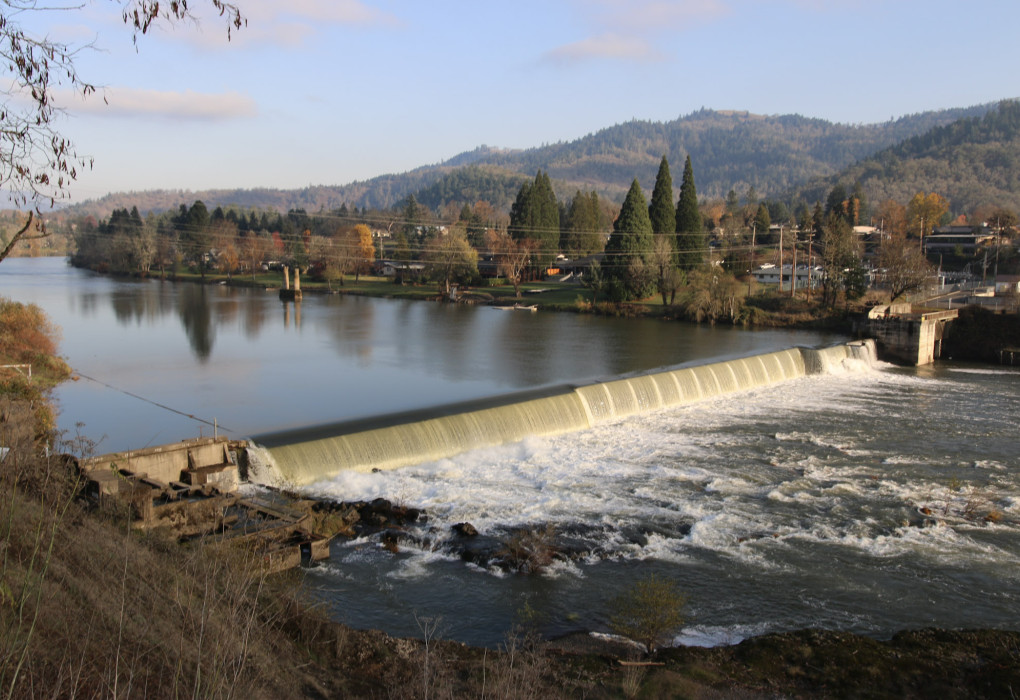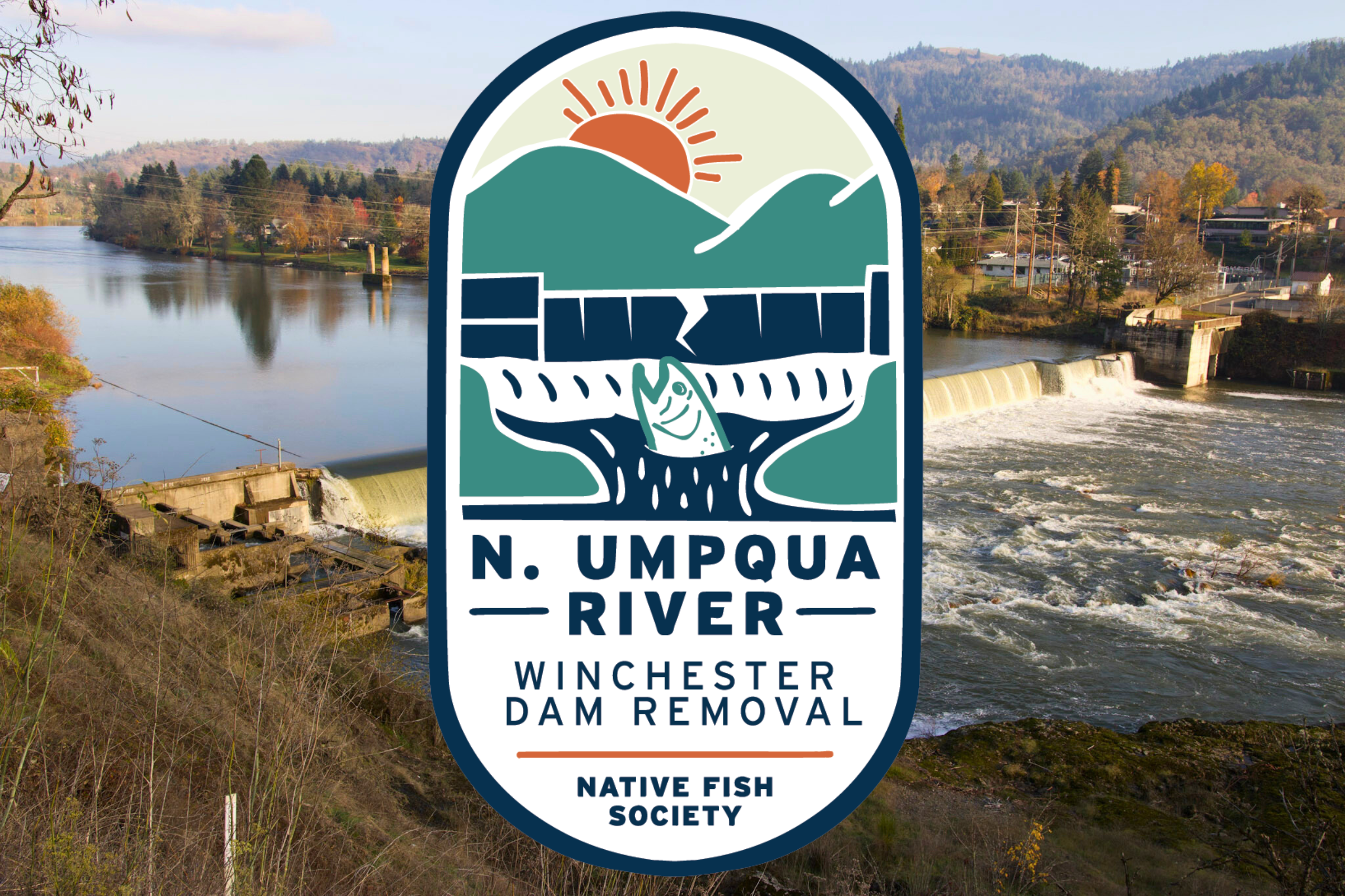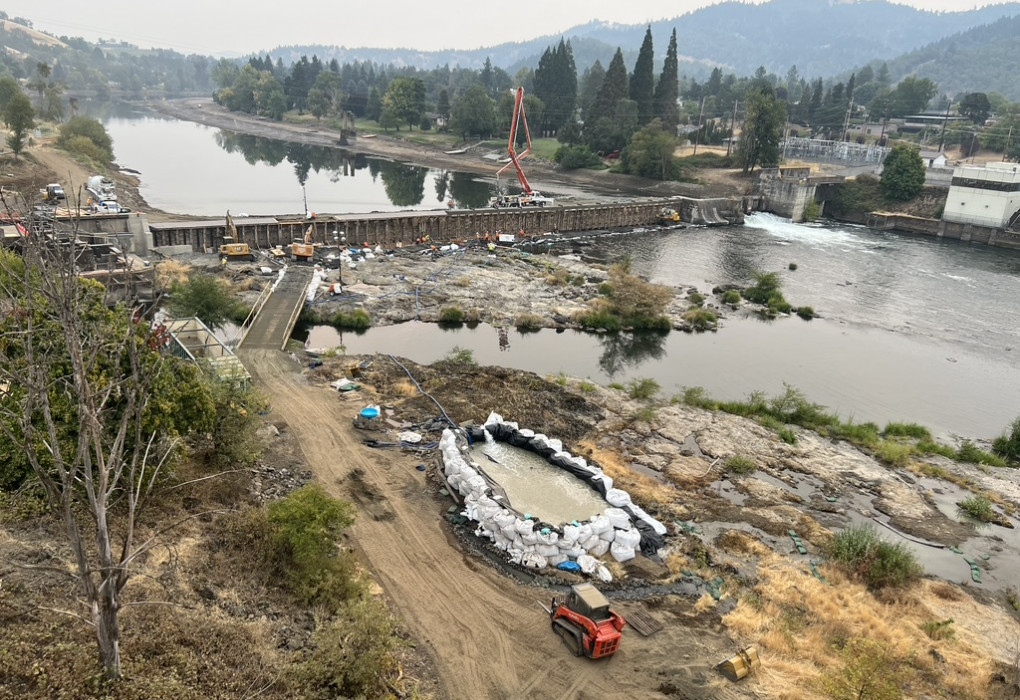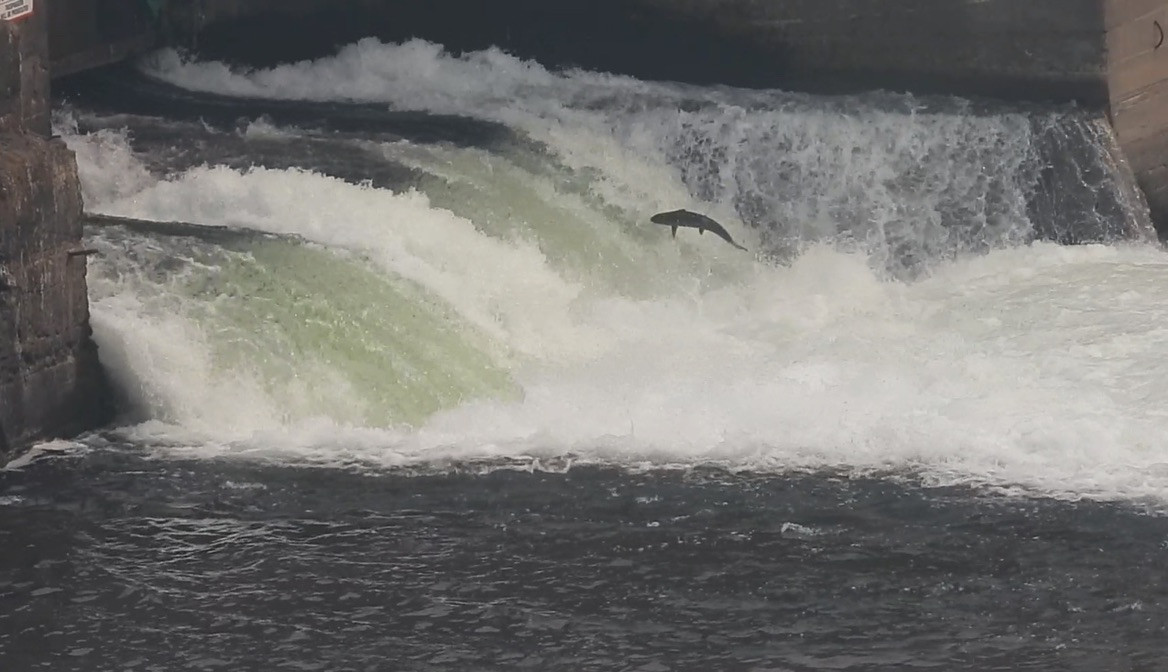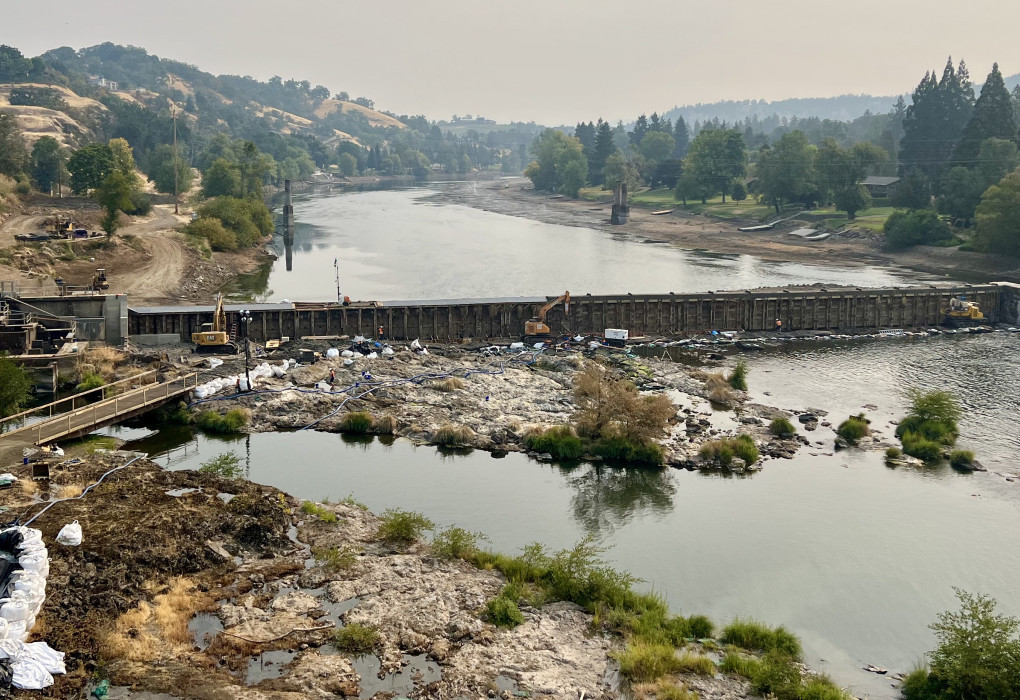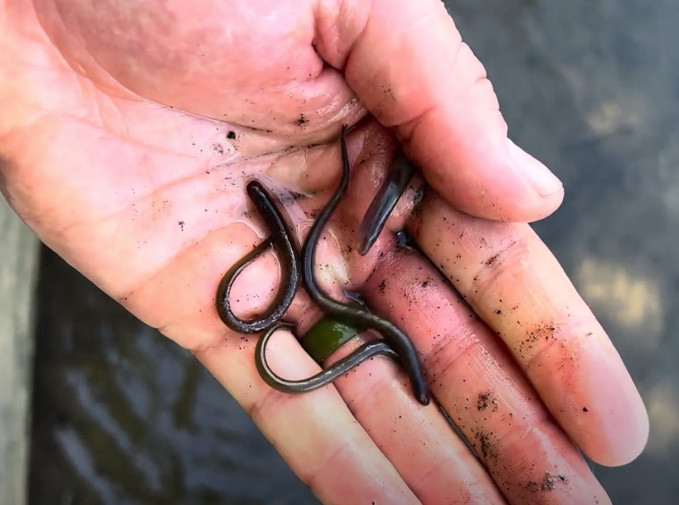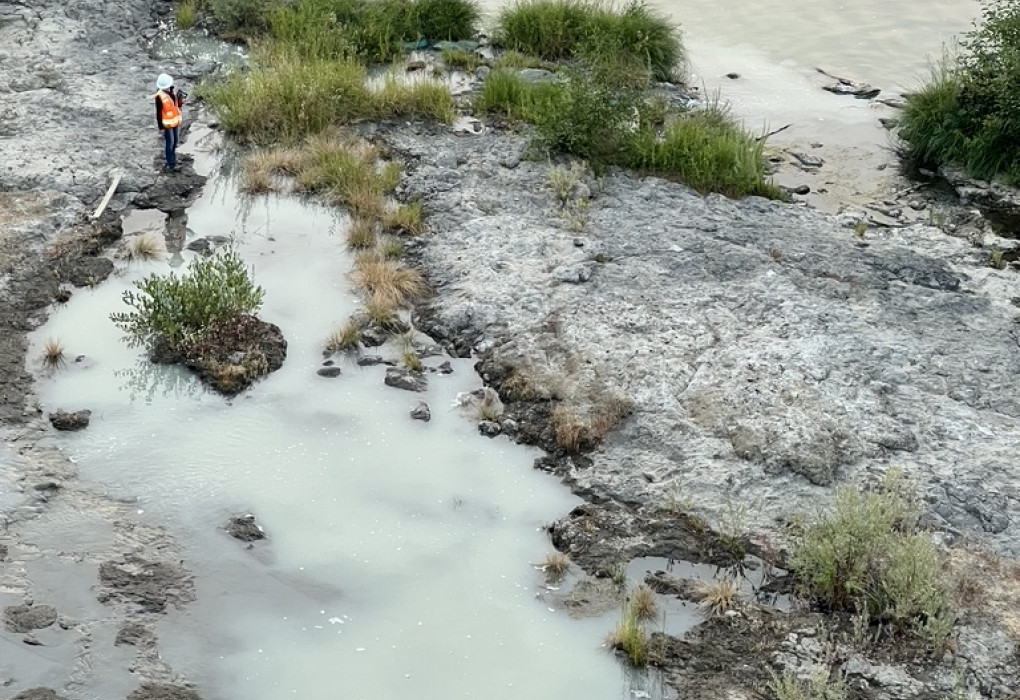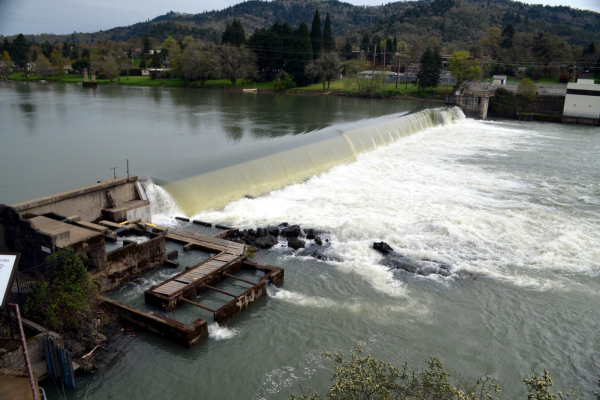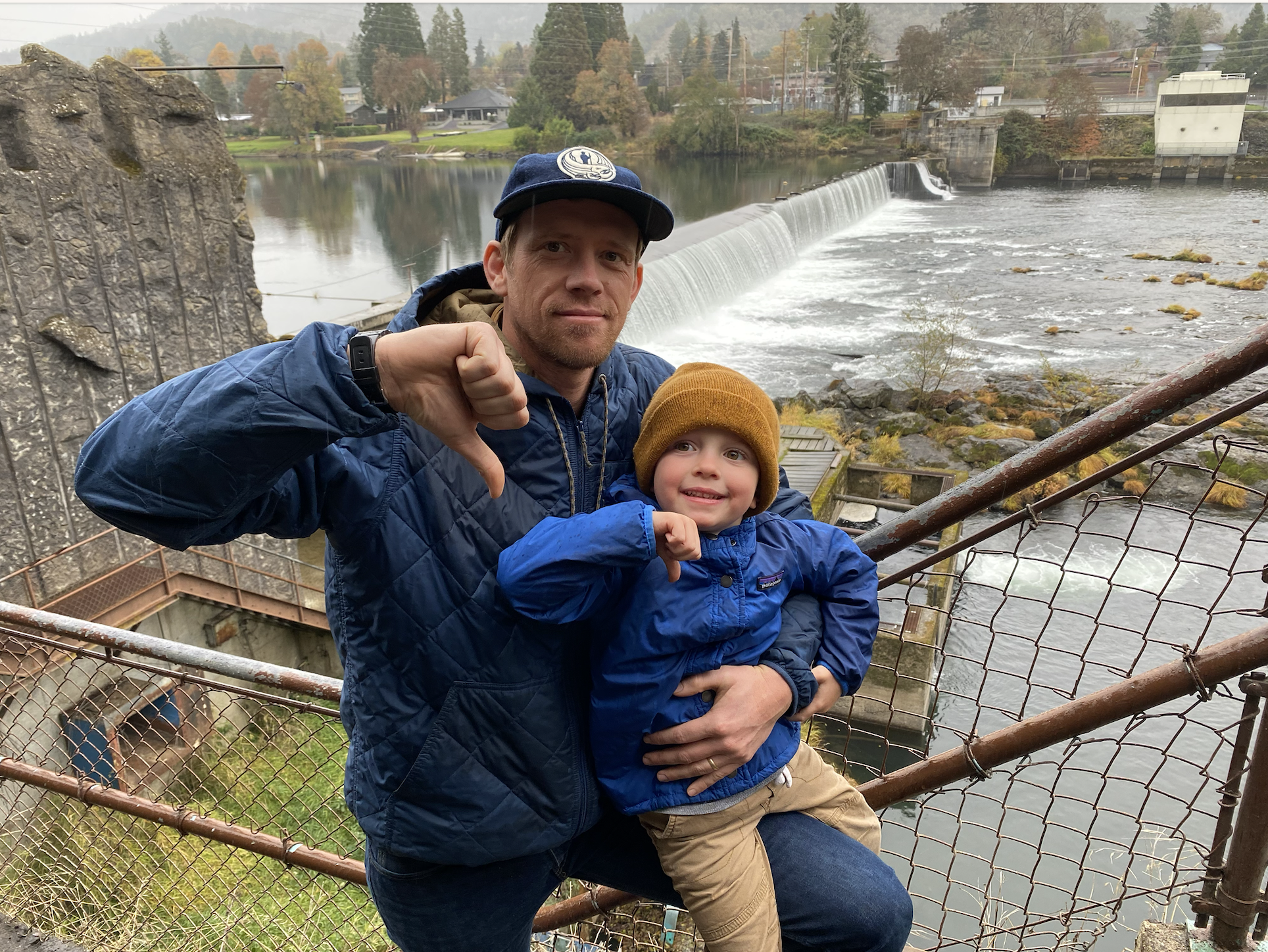
North Umpqua Notes: Vol. 2 - Winchester Dam's Modern History

Welcome to North Umpqua Notes, our new monthly series exploring the history, challenges, and future of one of Oregon’s most storied rivers.
Through these installments, we’ll dive into what makes the North Umpqua a sanctuary for native wild fish and why it remains a beacon of what’s still possible for rivers across the Pacific Northwest. We’ll highlight the people, projects, and policies shaping this river’s future, and share Native Fish Society’s ongoing efforts to restore and protect its wild abundance.
This is Volume 2 of an ongoing series tied to our work advancing two key campaigns: North Umpqua River: Winchester Dam Removal and Reviving Wild Abundance: An All-Wild Steelhead North Umpqua River. Along the way, we’ll be sharing important milestones, ongoing efforts, and how you can be a part of this vital work. View Volume 1 HERE. Additional parts and updates will be posted over the next several months. Stay tuned!
~~~~~~~~~~~~~
North Umpqua Notes: Vol. 2 - Winchester Dam's Modern History
In our commitment to restoring a free-flowing North Umpqua River and advancing the removal of the obsolete Winchester Dam, Native Fish Society has been closely tracking the ongoing legal proceedings involving the dam, its owners (the Winchester Water Control District), and the company responsible for the disastrous 2023 repairs (Terra Firma). While progress is almost always slow when moving through the court system, NFS and our conservation partners are staying the course.
Read on for a brief overview of the impacts of Winchester Dam and the conservation and legal actions underway to address them.
Endangered Species Act (ESA) Case:
This case challenged the dam owners for ongoing harm to ESA-listed coho salmon. Plaintiffs argued that the fish ladder was improperly built and contains false attraction flows, slowing fish down unnecessarily, leading them in the wrong direction. Additionally, water flowing over the face of the dam causes fish to attempt jumping over the dam, strike the structure, and fall onto the concrete below.
The lawsuit asserted that these issues amounted to an undue “take” of ESA-listed coho salmon. While the judge unfortunately ruled against these “take” claims (plaintiffs are currently appealing this decision), they did, however, acknowledge that the fish ladder is clearly insufficient and not operable by modern standards. This finding will strengthen ongoing fish passage litigation.
Dam Safety Case:
It has been brought to the state’s attention that Winchester Dam does not meet minimum safety standards and is classified as a high-hazard dam, thus posing a threat to downstream residents. A consent decree was issued by the state of Oregon requiring the installation of structural monitoring monuments designed by a certified engineer.
The engineer hired by the dam owners resigned rather than risk their professional certification. There is no indication that the dam owners have hired a replacement engineer, and as of September 30, 2025, the dam owners are in violation of the consent decree. An annual inspection on the south abutment of the dam is expected soon.
Lamprey Case:
In 2023, the dam owners received permits to make repairs to the dam. One of their permits issued by ODFW allowed for the killing of up to 30,000 lamprey when the reservoir above the dam was drawn down for repairs. Instead, approximately 550,000 lamprey died - one of the largest documented lamprey kills in Oregon’s history. NFS staff were the first to report the kill to ODFW.
A fine was levied by ODFW against the dam owners in excess of $27 million for killing lamprey, which was appealed by the dam owners. This summer, the complaint was amended and re-filed, though the fine amount remains unchanged.
DEQ Water Quality Case:
NFS staff also documented concrete illegally leaking into the river during the 2023 repair project. DEQ was notified and subsequently issued fines for water quality violations in excess of $134,000. These fines were later reduced, and the dam owners have appealed. Litigation began in early October 2025, with final briefs due by December 3, 2025.
ODFW Fish Passage Case:
This case is a lawsuit centered on the dam’s non-functional, outdated fish ladder. In short, the ladder is nowhere near compliant with modern fish passage standards and is even located on the wrong side of the river, making it more difficult for migrating fish to locate. Conservative estimates to rebuild it run into the tens of millions of dollars.
Post-trial hearings occurred through October, with a ruling expected by the end of 2025. ODFW has also stated they believe the recent dam facade changes are resulting in increased injuries to fish navigating the ladder.
Unlawful Water Storage Case:
Winchester Dam owners have been storing water well above their permitted amount for decades. When WaterWatch of Oregon filed a formal complaint, the dam owners attempted to retroactively change a renewal form filed nearly 30 years earlier.
The state rejected this attempt and ordered reservoir levels reduced. Dam owners appealed, pushing the case into court, with a hearing expected in March 2026. Their sole remaining defense is that they are being treated differently from other permit holders in Oregon.
Winchester Dam is an aging, harmful private structure - built not for public benefit, hydropower, flood control, or navigation, but solely to maintain a recreational reservoir for a small number of adjacent property owners. Yet the ecological and cultural costs burden the entire North Umpqua River basin and the wild fish, ecosystems, and communities that depend on it.
By holding the dam owners accountable and advancing the removal of this outdated structure, we are not just fighting for one river - we are charting a path that can serve as a beacon for conservation efforts on rivers across the region.
Through our Winchester Dam Removal and All-Wild North Umpqua campaigns, Native Fish Society will continue working toward a future where this river once again sets the standard for the revival of wild, native fish, free-flowing rivers, and thriving local communities.
Stay tuned for more updates!
~~~~~~~~~~~~~
Stay tuned for next month’s North Umpqua Notes, where we’ll continue to explore the currents shaping the river’s wild future - from habitat projects and policy shifts, to community partnerships, restoration success stories, and more!
If you have questions or ideas for topics you’d like to see featured in North Umpqua Notes, we’d love to hear from you! Send your thoughts to NFS Southern Oregon Coordinator Charles Gehr at charles@nativefishsociety.org, or learn more about our North Umpqua Campaigns here:
